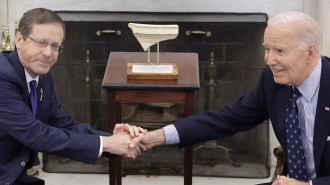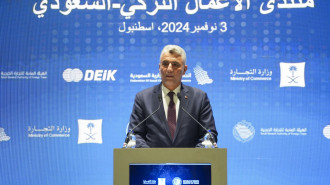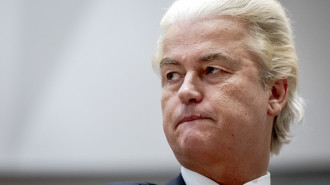Nigeria police orders crackdown on supporters of Shia group after ban
"Any person engaged or associating, in any manner that could advance the activities of the proscribed Islamic Movement in Nigeria (IMN), shall be treated as a terrorist, enemy of the state, and a subversive element and shall be brought to justice," Mohammed Adamu told senior officers.
"The import of this is that all forms of procession or protest by IMN is now illegal and thus banned," Adamu said in comments released on Facebook.
He called for members of the public to provide information "that will aid in the identification of the locations of the IMN members and their mentors".
The government on Sunday announced it was banning the Shia group after obtaining a court order declaring its activities "acts of terrorism and illegality".
The IMN, which takes its inspiration from Iran's Islamic revolution, has staged almost daily protests in the capital Abuja in recent months calling for the release of its detained leader Ibrahim Zakzaky.
At least six protesters, a journalist and senior police officer were killed last Monday as security forces clashed with demonstrators.
On Tuesday, Human Rights Watch warned that the ban "may portend an even worse security force crackdown on the group" and urged the authorities to reverse it.
Zakzaky has been in custody since he was arrested in December 2015 following violence that rights groups say saw the army kill some 350 of his followers.
In October last year, the IMN and human rights groups said more than 40 people were killed when the security forces opened fire on protesters.
The IMN has looked to ramp up pressure on the authorities amid fears for the health of the group's leader.
Zakzaky has been held along with his wife Zeenah Ibrahim despite the federal high court ordering their release in 2016.
The government refused and filed fresh criminal charges, including culpable homicide that is punishable by death.
State prosecutor Dari Bayero, speaking to reporters after a hearing in the northern town of Kaduna, said Zakzaky's doctors had applied for him to be flown to India to receive intensive treatment for an undisclosed ailment.
He said the prosecution had urged the court to reject the request.
"The court is going to rule on Monday (August 5) on whether to allow him to go or enjoy the medical facilities (available) in this country," he said.
Defence lawyer Femi Falana said Zakzaky's health and that of his wife, who is also detained, had deteriorated so much that they were unable to attend the hearing.
"Their health condition is so bad that they could not come," he said.
The government has repeatedly ignored previous court rulings for Zakzaky's release on health grounds, insisting he was being held in the national interest.
IMN spokesman Ibrahim Musa said the group was "not happy" with the postponement decision and that almost daily demonstrations would continue.
"The protests will continue because we cannot fold our arms and see our sheikh dying," he said.
The IMN, which emerged as a student movement in the late 1970s, has close ties with Shia Iran.
The group has faced hostility in Nigeria, especially in the predominantly Sunni Muslim north of the country, where religious elites are allied with Saudi Arabia.
Follow us on Twitter: @The_NewArab







 Follow the Middle East's top stories in English at The New Arab on Google News
Follow the Middle East's top stories in English at The New Arab on Google News


